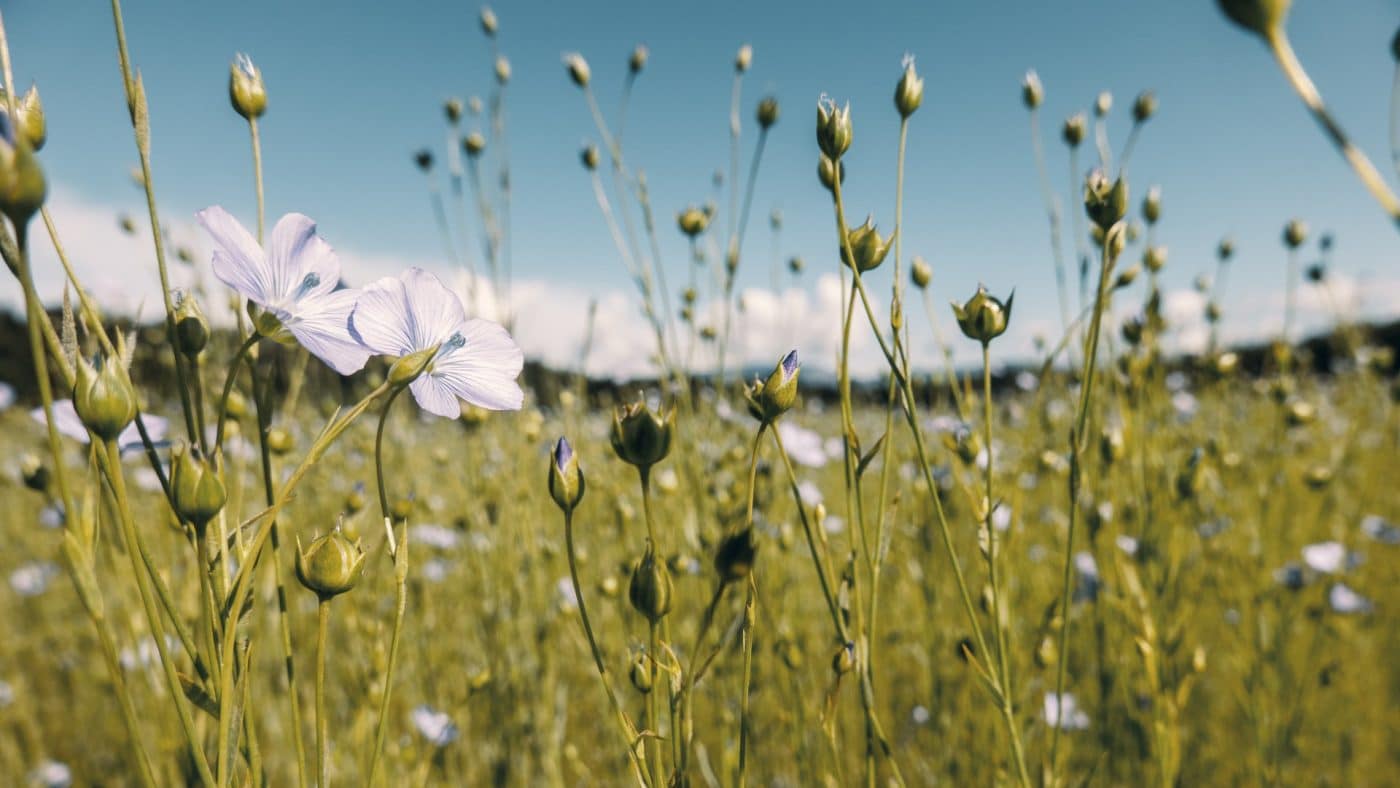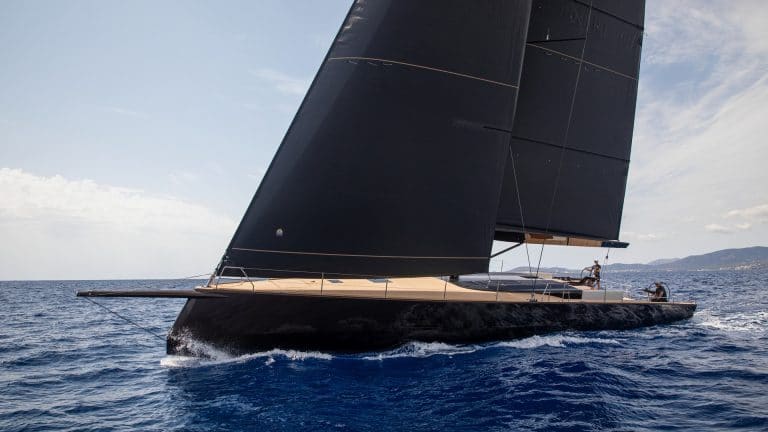
A sustainable approach to yacht building
26 November 2020
The first Baltic 68 Café Racer hull has been successfully laminated using a bespoke flax SPRINT product as we adopt more sustainable materials for our advanced composite structures. This yacht is thought to be the largest ever built using flax.
We asked composite materials and engineering experts Gurit to develop a special SPRINT laminate using naturally grown flax as its reinforcement. The flax fabric selected is called ampliTex™ and is made by Swiss firm Bcomp. The SPRINT/prepreg epoxy resin system has a proven track record in the marine industry and flax is an excellent alternative reinforcement material.
In this specially developed SPRINT product, a layer of pre-catalysed resin is sandwiched between two plies of dry ampliTex™, one woven and one multiaxial. Benefits include precise control of resin, a laminate with very low void content and a reduction in the amount of labour required to lay the materials in the mould. The ampliTex™ SPRINT makes up more than 50% of the Café Racer’s hull reinforcement.

An advantageous property of flax is that it absorbs vibration and consequently has excellent sound deadening properties. This means we can reduce the amount of sound insulation in a yacht and save space.
Carbon is stronger and stiffer than flax so we still use it in high-load areas, but flax can be applied in many other areas contributing to the reduction in the yacht’s overall carbon footprint. In some areas carbon and flax are combined in the SPRINT product.
Using flax is part of Baltic Yachts’ strategy to find more sustainable building materials and while carbon and other advanced composites still play key roles, flax, recycled PET (polyethylene terephthalate), balsa and bamboo are among an increasing number of eco-friendly options being used for a variety of applications.
The video shows ampliTex™ SPRINT – the beige coloured material – being cut to size and laid over an outer skin of carbon, which still provides the best hull surface finish and prevents ‘print through’ of the reinforcement laminate. Once these layers are in position inside the mould, the Corecell core is applied. To complete the lamination, the inner hull skin is laid over the Corecell. The inner skin is also SPRINT, but uses carbon reinforcement, largely to enable the hull weight target of 1557kg to be met.


With the separate laminates all in place, the entire structure is vacuum-bagged to eliminate air pockets, then heated to 85°C for 16 hours. As it heats, the resin contained in the SPRINT’s inner layer flows into the flax reinforcement creating a thorough and even distribution to complete the consolidation process.

Flax is used in the additional laminates required around the keel area and balsa is used as a core in the longitudinal stringers which create additional stiffness in the hull structure. Eleven structural bulkheads, all using flax skins and a balsa core, have been bonded into the hull.




Continuing the sustainability theme, we have sourced a PET foam manufactured by Armacell for use as the core material in non-structural panels in the accommodation. Thomas Lill, Baltic Yachts’ Composite Materials Purchaser, explained that the material is made from recycled coloured plastic bottles which cannot be re-used for bottle making.

The first Baltic 68 Café Racer will be launched in Spring 2021, her approach to sustainability being further supported by her ability to charge her own lithium battery bank by hydrogeneration via her twin, free-wheeling propellers. She’s designed as an ‘unplug-and-go’, easy to handle, performance sailing yacht equipped with twin electric motors and a super-stylish accommodation. Other energy-efficient, low-carbon equipment including a micro-turbine generator, is also being considered.

The Baltic 68 Café Racer offers a powerful package of exciting sailing and eco-technology, a modern yacht reflecting the Café Racer era of the 1960s when London’s Rockers rode pared down, visually minimalist motor bikes designed for fast rides over short distances. Riders and bikes were seen as disrupters displaying speed, status and rebellion – they had attitude


